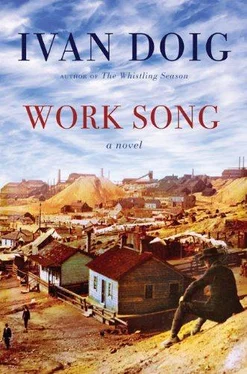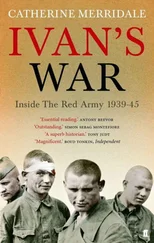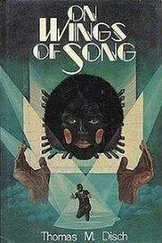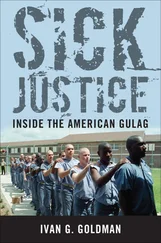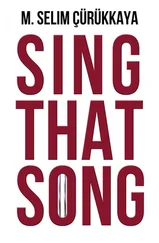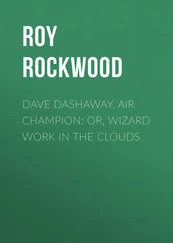I laughed helplessly. “Why didn’t I think of this?”
“You must be slipping,” she teased.
“I’ll try to make up for it. Wait here, I’ll be right back.”
She frowned. “Has anyone ever told you, Morrie, you are restless company? ”
Off I went in search of a gnome that moved, and found him circulating in the vicinity of the men’s lavatory, as expected.
“What’s up, buddy?” the halfpint messenger, in Sunday suit and bow tie for the day, called out when he spotted me. “Hey, how about those White Sox? They’re burning up the league.”
I sighed. Chicago follows a person like a botanical name. “The Comiskey Cheap Sox,” I scoffed as I came up to him. “They’ll unravel.”
“You Cubs guys don’t know real baseball when you see it.”
“I shall keep looking.” I left it at that and got down to business. “Skinner, I believe you might know how a man could place a bet.”
“Think so?” He scanned the grounds. Satisfied that no strolling policeman was going to intrude on his working territory, he whipped out a much-used notebook. “What’s your pleasure? The boxing matches? The mucking contest?”
“The boys’ hundred-yard dash.”
Indignantly Skinner pushed away the money I held out to him. “You kidding me? Use your noggin, buddy. Not till I look this over. How do I know you’re not running some junior-size Jim Thorpe in on me.”
RUSSIAN FAMINE was shambling back and forth at the edge of the field of contestants like a stray keeping his distance from the herd. All the boys in the race wore jerseys cut down; the stenciled FARADAY BOARDING HOUSE practically wrapped around him.
I went over to lend encouragement. I needed some myself after a closer look at our entrant. His gangly arms and legs were as pale as if the bones beneath were reflecting through, the strawy hair had not been combed in days, and for lack of a handkerchief in his racing outfit he was busily wiping his nose with the tail of the jersey. I had to hope the rest of him was as runny as his nose. Bending down to him, I urged in a low voice: “When you’re in the race, Famine, just imagine the other boys are trying to catch you and beat you up.”
“Doesn’t take much imagination,” he said stoically.
“To the victor belongs the spoils, remember.”
“Huh?”
“Just run like the wind.” I patted him on a barely existent shoulder, then joined Grace on the sidelines. She looked worriedly at the bigger boys in the race. “You’re the one who told me he’s lightning on two legs. He’ll need to be.” She inclined her head indicatively at a lanky redheaded lad, Irish as Saint Paddy, wearing a jersey with PETERSON’S MODERN MORTUARY across his chest, and on the back: AND FUNERAL HOME. “Look at that one, he makes two of poor Famine. This had better be worth the five dollars,” she muttered, meaning the sponsoring fee.
“At the very least, it will distinguish the boardinghouse.” I did not need to say with precision that it would distinguish it from the different sort of houses a block or so away in Venus Alley.
Catching Skinner’s eye, I stepped over to place my bet. Observing this wagering side of me, Grace bit her lip but said nothing. Skinner wasn’t happy to see me either. He shook his head, squinting skeptically at the assortment of boys, and Famine in particular. “Huh-uh, I don’t bet blind. How do I know this kid of yours isn’t some kind of freak of nature?”
The gambling spirit took another leap in me. “Then let’s try this. I’ll bet he wins by at least ten yards.”
“Ten out of a hundred?” Skinner exclaimed. “A racehorse couldn’t do that. You’re on, let’s see the color of your money.”
He bolted for the far end of the track to gauge the finish, and I swept Grace along, despite a little protesting squeal. Meanwhile at the starting line, eleven of the dozen boys took determined stances while the Faraday Boarding House entrant stood there, fidgeting from one scuffed foot to the other. Somewhere the band played “When You and I Were Young.” The starter’s pistol fired. And Russian Famine was in full flight while the others were getting their speed up. He ran as if the devils of the steppes were pursuing him with red-hot pitchforks. He ran however fast it is a boy can run. Down the track he came, flying toward us, leaving the puffing pack of other runners in his dust, if there had been any. He crossed the finish line so far ahead of the others that Skinner simply turned away.
While Grace hurried over to congratulate her winner, I stepped aside to settle up with Skinner. Disgusted, he ponied up my bet. “Hardly fair. That skin-and-bones kid is like a streak.”
“Exactly.” I made a show of taking out my wallet and plucking the money from his bookmaker hands. “Don’t you think he would make a messenger, if the right someone were to put in a word for him?” Skinner was giving the money hovering over my wallet a sad farewell gaze. “Who knows, I might forgive the bet if that were to happen.”
Skinner perked up. “I guess I could see about it.”
“At,” I emphasized with a riffle of the money, “the Hennessy Building.”
“At the Hen? Whoo, that’s tough.” He scratched his head as if digging out a thought. “They do hire an office kid for the summer. Usually it’s some bigwig’s fat nephew.”
“Put it to them that in the relay of their messages, they have a choice between a flatfooted chair-warmer and winged Mercury.”
“I’ll skip that lingo, but those top-floor guys are always on fire to get their messages delivered fast.” He watched in dismay as I tucked the wagered sum into my wallet. “Hey, when do I get my bet back?”
“At the time my friend Wladislaw becomes a messenger you-know-where.”
WHILE I WAS AT THAT, Grace had flagged down a vendor and provided our victor with a feast of salami and cheese. Famine was devouring the victuals as if living up to his name when I joined them. I ruffled his hair, telling him that’s where the laurel wreath should reside for a race so splendidly run and won, and in professional interest asked what he was going to do with his winnings.
He burped. “Eat some ice cream. Then go on the rolly coaster.”
Grace and I watched him bound away. By then our own next diversion was hammering at us, literally. At the end of the field was what seemed to be a carnival of clang and clamor-even in its entertainment, Butte flexed its muscles-where contests of mining skills were being held. Arm in arm without thinking about it, we strolled over to spectate as the Miners’ Band set the mood with “The Anvil Chorus.” I saw Grace turn somber amid the displays of strenuous skills that had been her husband’s working life. The mucking contest was almost too fatiguing to watch, as men competed to see who could shovel a ton of ore into an ore car the fastest. Moving on, we came to a series of drilling contests, divided, I was interested to note, into weight classes like those of prizefighting-lightweight, middleweight, heavyweight-and competitors stripped to the waist readying for the match. Fit, muscular, confident of their skill, plainly these were the pick of the Hill, which meant of all the copper miners on earth.
Which is why I thought I was seeing wrong-Grace’s reaction was even more pronounced than mine-when just ahead of us, swinging a sledgehammer and hoisting a drilling bar to loosen up, were Griffith and Hooper, shirts off, in their overalls and long underwear.
The weight of years defined this competition, as the placard bluntly announced: OLDTIMERS DRILLING CONTEST.
“No wonder they were so full of themselves this morning,” Grace burst out. “I hope they don’t fall over dead, the old fools.”
Across on the other side, there seemed to be no similar trepidation around their competitors, a pair of Finns who had lost no huskiness to age. Their supporters were whooping and clapping and singing in Finnish as if the contest already was won.
Читать дальше
